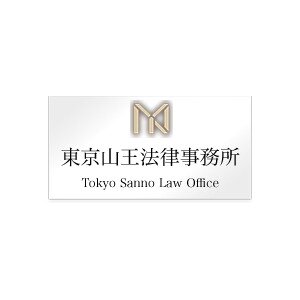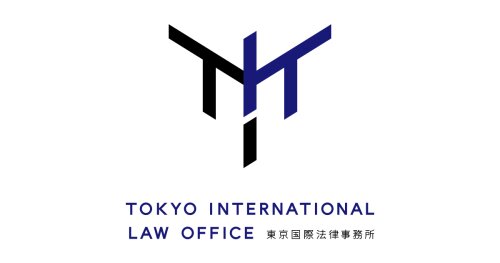Best Energy Regulatory Law Lawyers in Japan
Share your needs with us, get contacted by law firms.
Free. Takes 2 min.
Or refine your search by selecting a city:
List of the best lawyers in Japan
About Energy Regulatory Law in Japan
Energy Regulatory Law in Japan refers to the set of legal frameworks and regulations that oversee the generation, transmission, distribution, and retail of energy within the country. This area of law governs traditional sources like oil, coal, and natural gas, as well as newer renewable sources such as solar, wind, and geothermal energy. The Japanese government has continually reformed its energy regulations in response to economic, technological, and environmental challenges, especially following the 2011 Fukushima nuclear disaster. The primary purpose of these laws is to ensure a stable, safe, and sustainable energy supply while promoting competition, consumer protection, and environmental stewardship.
Why You May Need a Lawyer
Navigating Energy Regulatory Law in Japan can be complex, particularly for businesses and organizations dealing with energy generation, distribution, or consumption on a large scale. Individuals and companies often seek legal assistance for the following reasons:
- Starting or investing in energy generation projects, such as solar or wind farms
- Complying with regulatory approvals and licensing requirements
- Understanding and applying for government incentives or subsidies for renewable energy
- Managing disputes over energy supply contracts and power purchase agreements
- Adhering to environmental regulations and emission standards
- Navigating the complex Feed-in Tariff (FIT) or Feed-in Premium (FIP) schemes
- Addressing competition law concerns and anti-monopoly regulations in the energy sector
- Handling compliance inspections or government investigations
A lawyer with expertise in this field helps clients interpret legal obligations, draft and review contracts, respond to regulatory changes, and minimize legal risks.
Local Laws Overview
Japanese energy regulation is primarily governed by the Electricity Business Act, the Gas Business Act, and other related statutes. These laws are administered by the Agency for Natural Resources and Energy (ANRE) under the Ministry of Economy, Trade and Industry (METI). Key aspects include:
- Mandatory licensing or notification to engage in energy businesses, including electricity generation, transmission, and retail
- Feed-in Tariff and Feed-in Premium systems to promote renewable energy by guaranteeing fixed or premium prices for renewable electricity producers
- Stricter safety and operational regulations for nuclear energy facilities and fossil-fuel plants
- Market liberalization measures, including allowing new entrants and encouraging fair competition among suppliers
- Grid access rules that aim to ensure open access to transmission and distribution networks
- Consumer protection regulations addressing metering, billing, and transparent contract terms
- Environmental compliance requirements, such as emission controls and energy efficiency mandates
Local ordinances can also impose additional requirements for renewable energy projects and environmental impact assessments, making it important to consider both national and regional regulations.
Frequently Asked Questions
What is the Feed-in Tariff (FIT) system in Japan?
The FIT system requires utilities to purchase electricity generated from renewable sources at fixed rates, providing financial stability for renewable energy projects and encouraging their development.
Do I need a license to generate or sell electricity?
Yes, most energy businesses in Japan require registration or licensing from METI, depending on the scale and nature of the operation.
How has Japan liberalized its electricity market?
Japan has gradually opened up generation, retail, and transmission markets to competition, enabling new companies to participate and giving consumers more choices.
Are there government incentives for renewable energy?
Yes, aside from the FIT and FIP schemes, there are subsidies, grants, and tax incentives for certain renewable projects and energy efficiency measures.
What regulations apply to energy storage systems?
Energy storage, like batteries, is regulated under the same framework as generation depending on their integration with the grid, with specific safety and licensing requirements.
Who regulates energy prices in Japan?
Electricity and gas prices are primarily regulated by METI, with certain retail tariffs subject to government approval, especially for household consumers.
What are the main environmental obligations for energy companies?
Energy companies must comply with emission standards, noise regulations, and, in some cases, conduct environmental impact assessments prior to project approval.
What are the rules for connecting renewable energy to the grid?
Grid operators are generally required to allow access but can impose technical and capacity-related conditions. Connection procedures must be followed, and fees may apply.
Can foreign entities invest in the Japanese energy sector?
Yes, but certain investments may require advanced notification or approval under the Foreign Exchange and Foreign Trade Act, especially for critical infrastructure.
How can disputes in energy contracts be resolved?
Most contracts stipulate dispute resolution mechanisms, including negotiation, mediation, arbitration, or litigation under Japanese law, with regulatory intervention possible in some cases.
Additional Resources
If you need more information or wish to monitor regulatory developments, these resources can be invaluable:
- Agency for Natural Resources and Energy (ANRE), Ministry of Economy, Trade and Industry (METI)
- Japan Electric Power Exchange (JEPX)
- Japan Renewable Energy Foundation (JREF)
- Japan Wind Power Association (JWPA)
- Japan Photovoltaic Energy Association (JPEA)
- Local government offices overseeing environmental permits and energy-related ordinances
Many of these organizations provide guidance documents, policy updates, and sometimes access to legal experts.
Next Steps
If you believe you need legal assistance in Energy Regulatory Law in Japan, consider the following steps:
- Clearly define your issue or objective, whether it is engaging in a new project, resolving a dispute, or complying with regulations
- Gather all relevant documents, such as contracts, permits, correspondence with regulators, and project details
- Research and consult with a qualified lawyer or law firm with expertise in Japanese energy regulations
- Schedule an initial consultation to evaluate your legal needs and receive tailored advice
- Stay informed of regulatory updates, as energy law in Japan evolves rapidly in response to technology and policy changes
Taking these proactive steps can help ensure compliance and protect your interests in Japan’s dynamic energy sector.
Lawzana helps you find the best lawyers and law firms in Japan through a curated and pre-screened list of qualified legal professionals. Our platform offers rankings and detailed profiles of attorneys and law firms, allowing you to compare based on practice areas, including Energy Regulatory Law, experience, and client feedback.
Each profile includes a description of the firm's areas of practice, client reviews, team members and partners, year of establishment, spoken languages, office locations, contact information, social media presence, and any published articles or resources. Most firms on our platform speak English and are experienced in both local and international legal matters.
Get a quote from top-rated law firms in Japan — quickly, securely, and without unnecessary hassle.
Disclaimer:
The information provided on this page is for general informational purposes only and does not constitute legal advice. While we strive to ensure the accuracy and relevance of the content, legal information may change over time, and interpretations of the law can vary. You should always consult with a qualified legal professional for advice specific to your situation.
We disclaim all liability for actions taken or not taken based on the content of this page. If you believe any information is incorrect or outdated, please contact us, and we will review and update it where appropriate.
Browse energy regulatory law law firms by city in Japan
Refine your search by selecting a city.

















